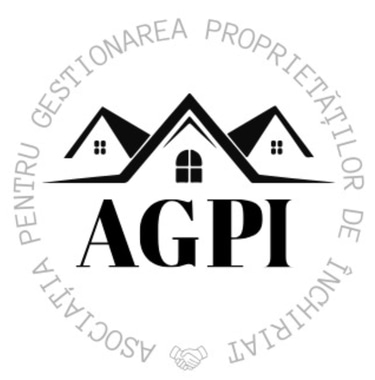Running your short term rental in Romania
A mini step by step guide


1. Classification Certificate
Action: Obtain a classification certificate from the Ministry of Tourism.
Details: You will first receive a provisional certificate, followed by the final classification. This certification confirms that your property meets the required standards for short-term rentals.
2. Annual Taxes and Property Registration
Action 1: Register the property for short-term rental purposes with your local tax office - non-residential.
Action 2: Pay the annual property (building) taxes, which are typically higher than standard property taxes for residential properties.
Note: The exact tax rate can vary by location, so check with your local tax authority.
Action 3: Pay the annual profit taxes using form 212 as well as the accommodation capacity form.
3. Additional Monthly Taxes
Action 1: Pay additional local taxes specific to short-term rentals on a monthly basis to your local tax office. These might include city taxes and specific fees such as a mountain rescue fee (in areas like Brasov). Procedures and tax amounts can vary by city.
Action 2: Obtain your digital signature to be able to sign off all mandatory forms.
Action 3: If you purchase goods or services from other EU countries for your rental business (such as listing your property on Airbnb, Booking or other OTAs), you need to account for VAT. Register for VAT and comply with intracommunity VAT rules by paying the VAT each month using forms 301 and 390.
Action 4: If you provide any kind of multimedia content (music, movies, etc.) in your rental property, you may be required to pay author rights taxes. These taxes compensate creators for the use of their works. There are several groups that charge subscriptions for these taxes and it is important to note that all must be paid, not just one.
4. Declaration of Domestic Guests
Action: Report Romanian guests to the local police office by providing the arrival and departure forms.
Details: All domestic guests should be declared. The exact process and reporting timeline might vary, so consult your local police department for specifics.
5. Declaration of Foreign Guests
Action: Report foreign guests to the immigration office.
Details: Guests from other countries must be declared within 24 hours of their check-in. Use the immigration portal for this purpose.
Summary of Steps:
Obtain a classification certificate from the Ministry of Tourism
Register the property and pay annual taxes
Pay any additional & local taxes required
Report domestic guests to the local police
Report foreign guests to the immigration office within 24 hours of their arrival
By following these steps, you can ensure compliance with local regulations and operate your short-term rental business smoothly.


European Regulations - DAC 7
A Guide for Short-Term Rental Hosts in Romania
Introduction
The Directive on Administrative Cooperation (DAC 7) is an EU directive that came into effect on January 1, 2023, aimed at enhancing tax transparency and combating tax evasion within the EU. This directive imposes new reporting obligations on digital platform operators, including those facilitating short-term rentals. This guide provides an in-depth look at the most important aspects of DAC 7 for short-term rental hosts in Romania.
What is DAC 7?
DAC 7 is an extension of the existing DAC framework, focusing on the digital economy. It requires digital platforms to report income earned by sellers (including rental hosts) to tax authorities. This data is then exchanged among EU Member States to ensure accurate tax reporting and compliance.
Key Requirements of DAC 7 for Short-Term Rental Hosts
Platform Reporting Obligations:
Digital platforms must report detailed information about the income earned by their users from rental activities.
Information to be reported includes total rental income, number of transactions, and details of the rented properties.
Data Collection:
Platforms are required to gather specific information such as:
Host’s name, address, Tax Identification Number (TIN), and VAT number (if applicable).
Financial details of each rental transaction.
Identification and location of the rental property.
Annual Reporting:
Platforms must submit the collected information to the relevant tax authorities by January 31 of the year following the reporting period.
For Romanian hosts, data for the year 2023 must be reported by January 31, 2024.
Implications for Hosts in Romania
Increased Transparency:
The Romanian National Agency for Fiscal Administration (ANAF) will receive detailed information about income from short-term rentals, which reduces the potential for underreporting.
Hosts must ensure that all rental income is accurately declared and taxes are paid.
Verification Process:
Hosts should be prepared for possible inquiries from tax authorities if discrepancies or omissions are detected in the reported data.
Record Keeping:
Accurate record-keeping is crucial. Hosts should maintain detailed records of all rental transactions, including income received and expenses incurred.
This will facilitate compliance and simplify the process if any verification is needed.
Potential Penalties:
Non-compliance with DAC 7 reporting requirements can result in substantial penalties, ranging from €20,000 to €100,000.
Additional restrictions can be imposed, potentially impacting business operations.
For instance, if a seller fails to provide the required information after two warnings, the platform operator can close the seller's account and withhold re-registration or payments until compliance is achieved.
Detailed Penalties and Consequences
Non-Compliance Penalties:
Failure to comply with DAC 7 reporting obligations can result in penalties from €20,000 to €100,000.
Non-EU digital platform operators registered in Romania also face these penalties and may have their registration revoked if they fail to comply post two warnings from ANAF.
Operational Restrictions:
If a seller does not provide the necessary information after two requests, the platform may suspend their account.
This suspension can affect the host’s ability to operate and generate income through the platform until compliance is met.
Impact on Business Relationships:
The stringent reporting requirements may strain relationships between platform operators and sellers due to the increased need for data collection and compliance.
Practical Steps for Compliance
Stay Informed:
Keep up-to-date with guidelines issued by Romanian tax authorities and the platforms you use for rentals.
Update Your Information:
Ensure your profile information on rental platforms is complete and accurate, including your TIN and VAT number if applicable.
Consult a Tax Advisor:
Engage with a tax advisor to understand your specific obligations under Romanian tax law and to ensure full compliance with DAC 7.
Leverage Technology:
Use accounting software or tools offered by rental platforms to track your income and expenses. This will help streamline the reporting process and ensure accuracy.
Conclusion
The implementation of DAC 7 marks a significant step towards increased transparency and tax compliance within the EU. For short-term rental hosts in Romania, understanding and adhering to these guidelines is essential. By staying informed, maintaining accurate records, and consulting with tax professionals, hosts can ensure they meet their reporting obligations and avoid potential penalties. While DAC 7 introduces complexity, with the right approach and resources, compliance can be effectively managed, allowing hosts to focus on providing excellent rental experiences.
AGPI
Creating a community for rental property owners in Romania.
Contact:
Newsletter
office@agpi.ro
© 2024. All rights reserved.
